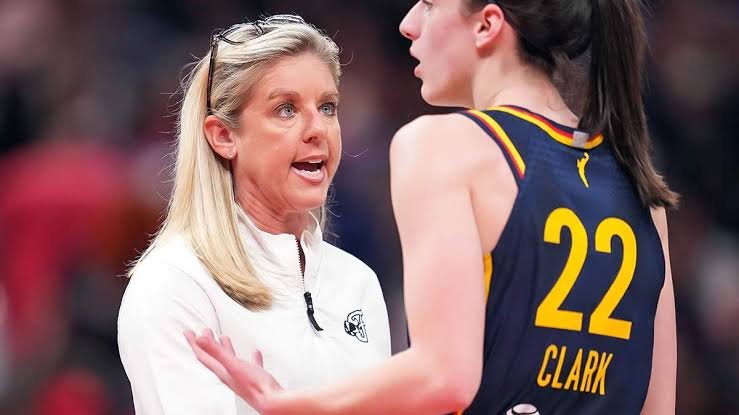
The Indiana Fever recently made the contentious decision to part ways with head coach Christie Sides, despite the team ending its seven-year playoff drought under her leadership. This choice raised eyebrows, particularly given Sides’ notable progress over her tenure; from 2022 to 2023, she increased the team’s win total significantly, culminating in a playoff berth as the No. 6 seed. This was a remarkable improvement from two years prior when the Fever struggled at the bottom of the WNBA standings. While the appointment of Stephanie White as Sides’ successor might have eased some concerns, it leaves lingering questions about the rationale behind the coaching change.
ESPN analyst Elle Duncan shared insights on the potential implications of this decision during a recent segment of “The Elle Duncan Show.” She emphasized the importance of player development, particularly for a team like the Fever that had begun to find its rhythm toward the end of the previous season. Duncan pointed out that introducing a new coaching regime might hinder the progress of players who were beginning to flourish under Sides’ guidance. The concern lies in how such a transition could disrupt their growth and potential as a cohesive unit moving forward.
On the other hand, it’s hard to dismiss the potential advantages of hiring a coach of White’s caliber. With an impressive career win percentage of .622 and a track record of playoff appearances in each of her coaching seasons, White brings a wealth of experience and success. Fans and analysts alike recognize that her leadership could elevate the Fever to new heights. While the transition poses risks, White’s pedigree might provide the spark the team needs to compete more effectively in the future.
Adding further complexity to the debate is the recent performance of standout players like Caitlin Clark, who significantly improved under Sides, particularly in the latter half of the season. Clark’s emergence as one of the league’s top talents coincided with the Fever’s resurgence. However, skeptics argue that both she and fellow rookie Aliyah Boston successfully navigated coaching changes during their transitions from the NCAA to the WNBA, suggesting that they might adapt well to White’s leadership as well.
Ultimately, while the Fever’s decision to move on from Sides was bold and possibly strategic, it raises critical questions about the long-term impact on player development. The balance between immediate success and nurturing talent remains a pivotal consideration as the team looks to the future under new guidance. As the Fever embark on this new chapter, only time will tell if the gamble pays off or if they will look back with regret at the departure of Christie Sides.




